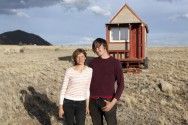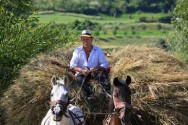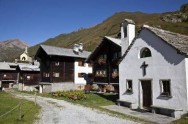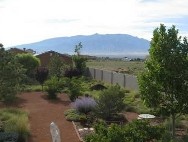
The Process of Moving Off-Grid: How to Begin
- Is off-grid living right for me?
- What degree of off-grid living am I comfortable with?
- What are my options?
- How much money do I have to dedicate to moving off-grid?
- Can I cut down and downsize?
- Where do I want to live?
- What kind of lifestyle can I have there?
- What do I need to be careful of?
- What do I want to do on my land?
- What are my skillsets?
- What do I need to learn?
- How will I sustain myself over time?
The reason I am emphasizing the decision process so much is because it is the main bottleneck in the process.
People see the appeal of living off-grid and then hesitate because they don’t know how to proceed or even what kinds of things to worry about. My goal is to lay out all the questions and considerations ahead of time because, as a Marine, I firmly believe that the more prepared you are, the easier time you will have, and the more successful you will be.
Long live the prepared!
Read over the questions above. You don’t need to have answers for them just yet but those are ultimately things that you will need to consider over the course of this process. It is a journey, a marathon, not a sprint. It will take time and will be easier sometimes and harder at others. In the end it will be worth it.
The first question is: “Is Off-Grid living right for me”. As I stated previously, I believe everyone should live off-grid to a degree. I want to emphasize that. Some people have more know-how with tools than others. Some people may have responsibilities that keep them in the city or are allergic to sunshine. (It’s a real thing; look it up. I would be devastated.) Obviously these challenges may cause this process to be almost insurmountable. Think to yourself. What is holding you back? What keeps you from advancing? Is it flexible? Is there a way to adapt it to an off-grid lifestyle?
If you cannot adapt your circumstances to an Off-Grid life, then see question 2 above. What are you comfortable doing? Maybe you are in a wheelchair. If so, can you garden in your backyard? I found a video online of an inspiring guy who built raised beds the height of tables in a horseshoe design so he could wheel into his spot, put his chair in park, and spend the afternoon planting without leaving his chair. That’s super motivating for weirdos like me. I don’t know why but I very much enjoyed watching that. I am going to cater my advice towards full-blown off-grid living but I fully support you to do whatever it is that you are comfortable doing and to take things slowly.
Living off-grid means being independent. You no longer rely on others …






